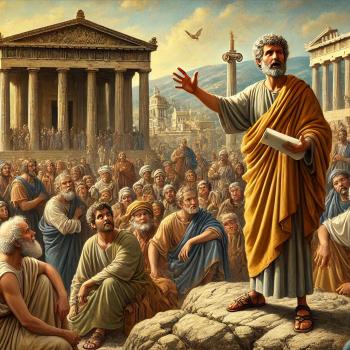What is most desirable? Not my own good, not the praise, honor, and wealth of the world, not even that I learn to love others. More desirable that those things is the love of God poured into human hearts. Only in receiving the love offered by the Father and his Son do we recognize the meaning of Jesus' birth and life. We must accept that love and work to help others also to accept it. Recognizing Jesus' birth and accepting the Father's love means being actively concerned for those who have closed their hearts to the love that God would pour into them.
Moroni 7:46-47: If ye have not charity, ye are nothing, for charity never faileth. Wherefore, cleave unto charity, which is the greatest of all, for all things must fail—but charity is the pure love of Christ, and it endureth forever; and whoso is found possessed of it at the last day, it shall be well with him.
Hamlet was wrong. The question is not "To be or not to be?" but "To love or not to love?" But perhaps he was less wrong than it first seems, for according to the prophet Mormon, to love is to be. To be is to be in relation, and the first relation, that of the Creation, and of the Incarnation, is the relation of love.
Relations based on other things will pass, but not those of charity. Charity—poured into our hearts from above—gives firmness and permanence to the world. Things will go well for us at the last day; we too will have permanence and firmness if charity possesses us rather than is merely one more of our possessions. Of course, for the Christian every day is the last day, the hoped for day, the day of Christ's coming.





